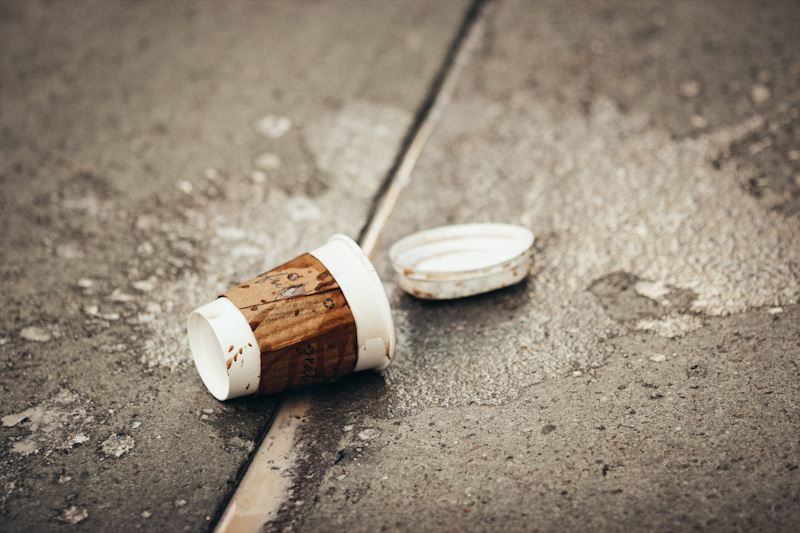Is It Normal To Be This Anxious in Recovery?
Things will feel very raw at first, no doubt, but as you progress, you can learn some simple methods for coping with everyday anxiety or get help if the issue is more severe

Your friends and family are panicked, angry, exasperated. You’re in a hospital setting, answering awfully personal questions about your substance use from strangers in white coats. You’re sweating, shaking, going away for 14 days, or 30, and is that covered by your insurance? Or you’re talking to people you’ve just met about things you want to forget, writing out a torrent of emotions, praying. Is there a court date coming up? Did you remember to set a “vacation” responder for your work email? … Did it have any typos?
Does everyone know?
Yeah, you could say the transition from addiction to sobriety can cause a little anxiety.
When seeking help, you’re almost certainly going to feel anxious about all, or at least some, of this whole thing. Almost everyone does, and you’re not alone in that. Emotions can run high when dealing with intense situations. There is a reason why a core part of All Sober’s mission is to make it easier and less overwhelming for people to get into treatment and on the road to recovery.
You’ll get through those first, toughest days, but it’s also extremely normal to feel anxiety as you progress in recovery, even when you’re doing well. Learning how to identify the sources of your anxiety and address them effectively can help make dealing with anxiety — and recovery in general — much more manageable.
Is It Stress or Do I Have an Anxiety Disorder?
One of the first steps you need to take is to identify what anxiety feels like to you. Everyone is different, and so are their experiences with anxiety. Sometimes worry and dread are situational, while other times anxiety is more persistent — but treatable.
There are general anxiety symptoms that you can look for, but ultimately, anxiety is specific to each individual. There are numerous types of anxiety, and it’s always best to seek professional help when trying to figure out which you may be struggling with.
Types of Anxiety
Some categories of anxiety include:
- Generalized anxiety disorder (GAD)
- Social anxiety disorder (SAD)
- Post-traumatic stress disorder (PTSD)
- Panic disorder
- Specific phobias
Anxiety disorders very often overlap with substance use disorders (SUDs) and can impact their treatment, so it is important to seek professional help for a dual diagnosis to treat both conditions simultaneously. Also worth noting: It’s not uncommon for untreated or undiagnosed mental health conditions to cause or exacerbate an SUD.
Symptoms of Anxiety
Once you understand which type of anxiety disorder you may be facing, you also need to try to identify your symptoms. Each person experiences different symptoms to different degrees when it comes to anxiety.
Some of the general symptoms of anxiety to be aware of are:
- Shortness of breath
- Fatigue
- Difficulty concentrating
- Sweating or clamminess
- Rapid heartbeat
- Trembling
- Nausea or digestive issues
- Dizziness
Learning to identify your anxiety and its patterns can prepare you for when it strikes. Anxiety can be overwhelming — especially for those combating addiction or working through tough moments in recovery — because when your emotions get away from you, it can feel like you have little to no control over the situation. That’s demoralizing, and it can sometimes lead to irrational or poor decision-making.
But when you know your anxiety is high, you can articulate that to your loved ones and ask for support. You can also start pinpointing negative thoughts, the first step to correcting or alleviating distress.
Anxiety, Addiction and Detox
Research has established that genetics play a role in both addiction and mental health disorders, including anxiety disorders. Those with anxiety may be more prone to substance use and addiction, and it’s not uncommon for people to turn to substances to cope with their mental health issues. But drugs and alcohol can worsen anxiety in a variety of ways, and anxiety, in turn, causes people to seek relief in them. It’s a vicious cycle.
When dealing with seemingly unmanageable levels of anxiety paired with an SUD, it often feels like there’s no end in sight. And unfortunately, anxiety can also make the detox and withdrawal stage of recovery, when anxiety naturally runs high, feel even more intense. But that part will indeed end, and you can get through it.
Combating Anxiety: Coping Methods To Help Calm the Mind
So, what to do in everyday recovery when your mind feels frazzled and frayed, and your anxiety starts getting out of control? Many coping methods and daily exercises can help you keep it at bay. One of the first things to evaluate, in fact, is your eating habits. Something as simple as changing your diet can significantly affect your mental well-being.
Incorporating these foods into your diet can improve brain function:
- Fatty fish
- Probiotic-rich foods
- Leafy greens
- Protein in the mornings
- Certain spices such as saffron, curcumin and ginger
While modifying your diet alone is not a cure-all for anxiety, it can be a great start. Along with your diet, check that you’re staying active and maintaining a regular sleep schedule. Those are a few day-to-day starters for improving your mood and reducing anxiety.
You can also add in other coping methods that combat anxiety, like journaling, talking with a friend or a loved one, listening to music, or practicing breathing and self-affirming exercises. Learning to cope with anxiety can be easier than you may imagine; you just need to find what best suits your needs. And of course, a counselor or other mental health professional can help you work through issues that seem intractable.
Exploring where your anxiety comes from and how to manage it can seem daunting, but it’s worth it: Healthy coping methods can reduce these feelings and improve many aspects of your life and outlook. Almost everyone experiences anxiety in some form, especially in recovery. Be open to support, listen to what your brain is telling you, and take things as they come.
More Help & Information
Does the 'Pink Cloud' of New Sobriety Help or Hurt? It's Complicated
The euphoria of early recovery may be fleeting, but long-lasting balance is the goal. Here's how to keep your head up through the process and handle reality with confidence.
Sobriety vs. Recovery: What's the Difference?
Are the concepts themselves up for debate? Do they require certain treatments, or abstinence from everything? It's complicated! And new ways of thinking are changing the conversation.
Now Elite NFL Players, They First Tackled Addiction | News Roundup
All Sober compiles the best of the latest headlines. Here's your addiction and recovery news for the week of Feb. 19, 2024!
Help Them Help You: Explaining Your Mental Health to Your Family
Your mental health can affect — and be affected by — your loved ones. Here's how to discuss it with them so everyone can heal.
Dry January (and Beyond): The Possibilities Are Endless
There's never been a better time to go sober. Whether you're trying it out this month or already living the life, join us for some tips, ideas, inspiration — and maybe even new friends.
Sober Holiday Tips: Meeting 'Share-a-Thons'
Need to get out of the house for a bit and see some friendly sober faces? Recovery support group meeting marathons run 24/7 from Christmas Eve through New Year's Day.
What Happens After an Intervention?
Your loved one agreed to get treatment for addiction during their intervention — or not. Here's what you need to know about what comes next.
We're in This Together: Building a Healthy Sober Support Network
You are the captain of your recovery, but you don't have to do it alone. A sober support network will lift you up in tough times and celebrate your triumphs.











